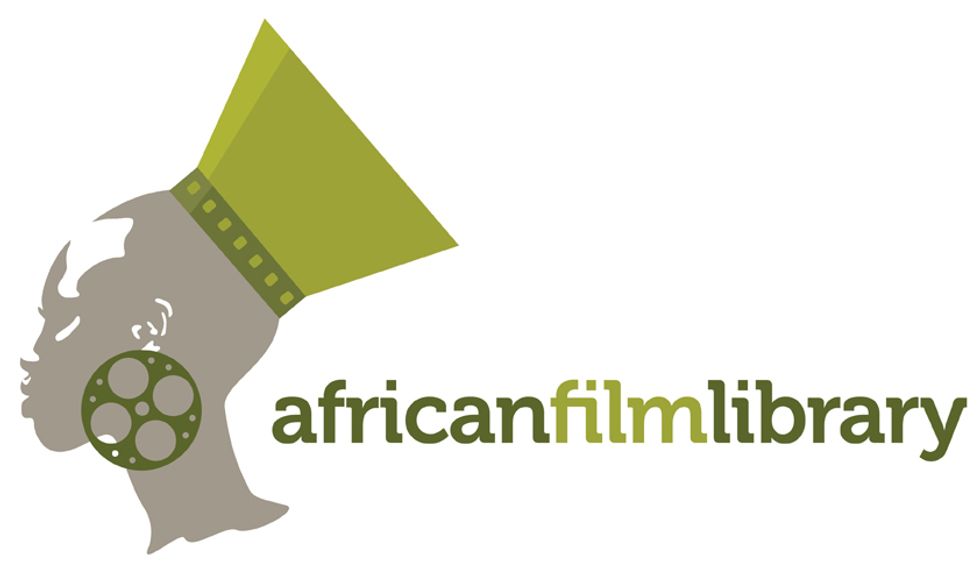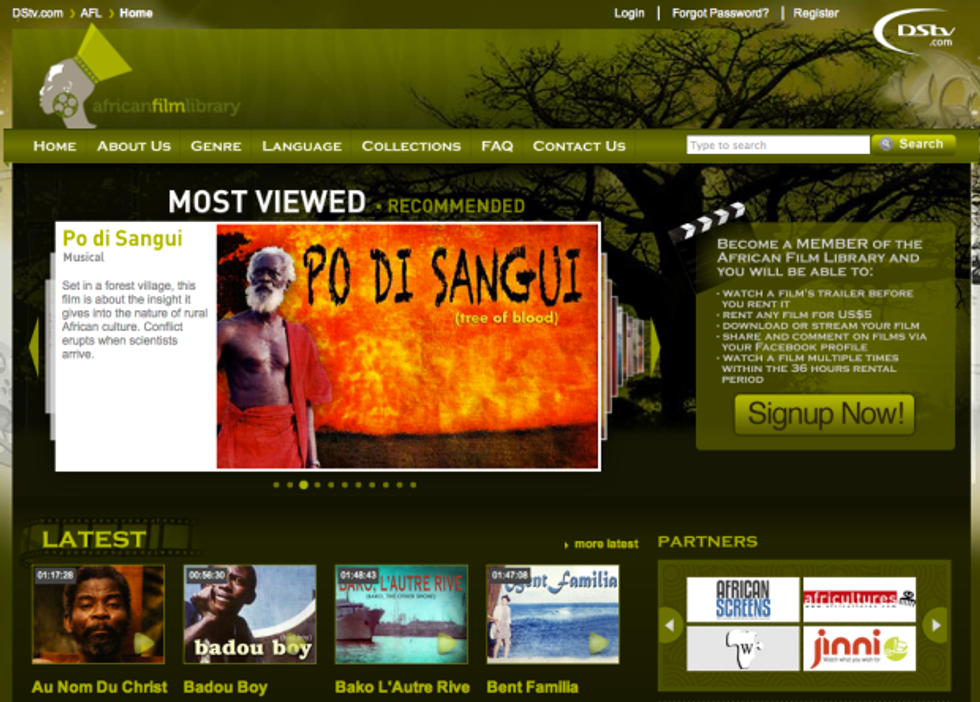
M-Net, via the African Film Library, has placed a body of work of unprecedented importance at the hands of anyone with an internet connection. Using the VOD (video on demand) platform, the South African broadcaster is permitting access to approximately 700 of the most noteworthy films from and about Africa, regardless of location, for five dollars a film. Each rental will allow multiple viewings during a 36-hour period.
[embed width="620"][/embed]
The African Film Library opens with 110 films, soon to be followed by an additional 600. Mike Dearham, the project’s curator and director of M-Net’s sales and acquisitions department, affirms: “This online movie rental program is a wonderful and unique opportunity for members of the African Diaspora as well as film and African culture lovers to experience the richness that the Continent has to offer.” Reflecting the variety of productions that fall under the heading “African cinemas,” the library encompasses a multitude of genres and formats, including dramas, comedies, musicals, sci-fi, documentaries, and shorts.
The initial selections represent both the classic and the contemporary: the Senegalese Sembène Ousmane, considered the father of African cinema, is represented by fourteen films, some his own, some dedicated to him; also included is the magnificent Hyenas (1992, above) by his compatriot, Djibril Diop Mambety. Viewers are provided with such foundational works as those of the great Egyptian director Youssef Chahine, the Burkinese Idrissa Ouedraogo, and the controversial Jean Rouch. The library’s contemporary holdings include many works noteworthy for their public and critical success, such as Lumumba (2000, below) by the Haitian Raoul Peck, Au Nom du Christ (1992) by the Ivorien Roger Gnoam M-Bala, Moussa Sené-Absa’s musical melodramas Tableau Ferraille (1995) and Madame Brouette (2002, below), the epic productions of the Ethiopan based in the US Haile Gerima, the irreverent documentaries of the Cameroonian Jean-Marie Teno, the comedies of the Guinean Flora Gomes, and many others.
[embed width="620"][/embed]
Both women and the diaspora are represented, the first by the Burkinese Fanta Régina Nacro, the Angolan Teresa Prato, and the Tunisian Moufida Tatli, the second by the Franco-Senegalese Alain Gomis and Congo’s Mweze Ngangura, among others. In Wolof, Zulu, Arabic, English, French, and Portuguese, the continent’s rich and vital history and its contemporary reality, sadly ignored, come to us from across the screen, helping to break the coarse stereotypes of the continent perpetrated by the mass media.
[embed width="620"][/embed]
The site is searchable by genre, language, director, and title. A welcome addition would be a system of hyperlinks or a section of background materials that would permit the user a better acquaintance with the historical and contemporary aspects of African cinema.
Nonetheless, the African Film Library is a double cause for celebration: not only because the films are finally being made easily and cheaply available to the general public, but also because the project is based within Africa’s frontiers. Until quite recently, the distribution of African films has been dominated by France and the United States, particularly La Médiatheque des Tres Mondes and California Newsreel. Without dismissing the importance of these estimable institutions for the promotion of African cinema, we may greet M-Net’s intrusion into the west’s erstwhile monopoly of African culture as a milestone in the recognition of the continent’s artistic significance. Given the quantity of anti-pirating legislation, the habits of consumers increasingly accustomed to watching films on smartphones, laptops, and tablets, and the near-impossibility of finding anything beyond commercial fare at local cinemas, there is little doubt that the M-Net servers will soon be flooded. In a country already to be praised for its tireless promotion of African cinema, M-Net represents an especially bright spot: from its opening of South Africa’s first pay-per-view channel in 1986 to the launching, in 2006, of DStv and M-Mobile, its on-demand and mobile platforms, this “multi-channel Pan-African content provider,” has been at the forefront of distribution of so-called minoritarian productions. With the ever-broadening reach of new technologies, the growth of audio-visual culture, the diversification of tastes and Africa’s continuing cultural ascendancy, this project seems to have a bright horizon ahead of it.
Read more by OKA contributor Beatriz Leal Riesco here.
- Interview: Director João Paulo Miranda Maria Illustrates Afro-Brazilian Narratives in 'Memory House' - OkayAfrica ›
- 10 African Films That Deal With Protest Culture & History - OkayAfrica ›
- SA Director Phumi Morare On Winning a Student Oscar - OkayAfrica ›
- Amarachi Nwosu Is Telling African Stories From An African Lens - OkayAfrica ›
- The Best African Films of 2021 - OkayAfrica ›
- Loukman Ali Is Taking Ugandan Film To The World - OkayAfrica ›
- Tanzania Scores its First Netflix Film Release with 'Binti.' - OkayAfrica ›


